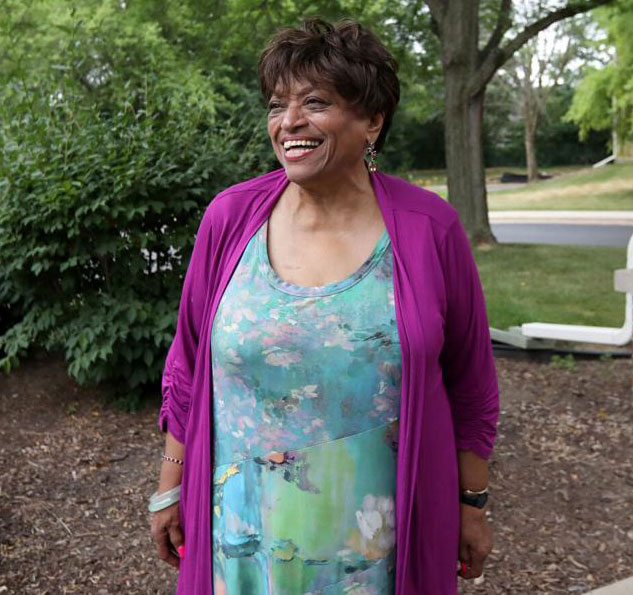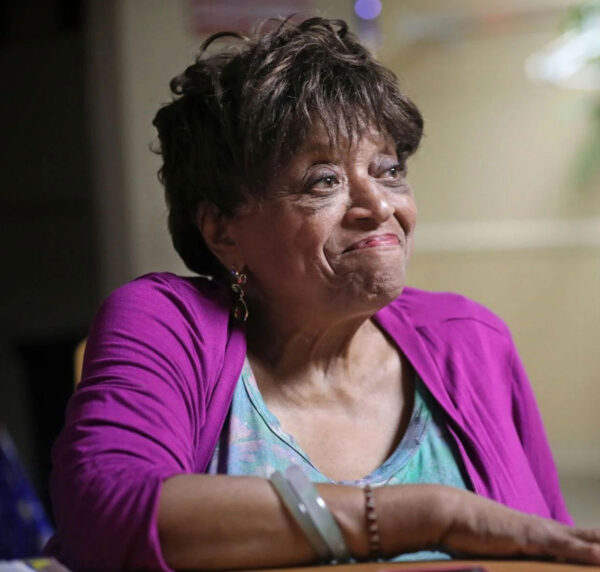Longtime nurse leader keeps working to advance the field
As she turns 85 on Wednesday, Barbara Nichols continues to work full time as executive director of the Wisconsin Center for Nursing. In early July, she attended an International Council of Nurses meeting in Montreal. In May, she testified at the state Capitol for a bill to allow advanced practice nurses to work independently.
Nichols, who became the first Black president of the Wisconsin Nurses Association in 1970 and the first Black president of the American Nurses Association in 1978, said she continues to work in the field because she wants it to grow and improve.
Born and raised in Maine, she went to nursing school in Massachusetts and became a nurse in 1959, when many hospitals were still racially segregated, “penicillin was a miracle drug and CPR was considered the devil’s work,” she said. After working for the Navy Nurse Corps, she moved with her husband, Larry, to Madison, where he came for graduate school and she worked at St. Mary’s Hospital.

In 1983, Nichols became the first Black woman in Wisconsin to hold a cabinet-level position when she was appointed secretary of what was then called the Wisconsin Department of Regulation and Licensing. She was CEO of CGFNS International, which evaluates the credentials of foreign nursing school graduates, before joining the Wisconsin Center for Nursing.
Her daughter, Nichelle Nichols, is president of the Madison School Board. Her twin sons live in Chicago and Austin, Texas. She and Larry live in Madison.
How has nursing changed since you started in 1959?
When I was in nursing school, the focus was on the art and science of nursing. The science was chemistry, biology, pathology, and microbiology. The art was psychosocial elements of care. That language has been translated in the 21st century to mean “evidence-based care.” When I graduated, if you were on the 3-11 p.m. shift, you gave “evening care,” which consisted of washing the patient’s face and hands, giving them a back rub, and changing the top sheet. Now, the nurse hardly ever bathes you. Hospital rooms have showers. Everything is electronically monitored. The focus is on treating the disease and answering questions. The care is more psychological and emotionally based.

We always had time to talk to patients. We did the vital signs, which nursing assistants do now. One of our jobs was to observe the patient. I’m sure that happens today, but they interact with the patient in relation to the machines.
What are the main challenges facing nursing today?
Being affirmed and acknowledged for the knowledge we have and the care we provide. The knowledge we bring has always been undervalued and underestimated. People would rather have a new physician than an experienced nurse.
A doctor and a nurse might both take a blood pressure (measurement), but we use the information differently. If you have high blood pressure, the doctor would prescribe drugs. The nurse might know the patient may have a headache, they may be sweating more, they may need to have their bed changed, they may become incontinent. Nursing is rooted in giving care. Medicine is based on cure.
The doctor has a lot of medications he can prescribe. The nurse is saying, “This drug is going to make you constipated, so if you don’t want to take a laxative, ask for prune juice.” Together, they provide a more holistic response.
Resiliency has been tough to come. I think there’s a lot of mental health fallout. Some people are leaving. In medicine, they say Dr. (Anthony) Fauci, and his explanation of the disease and how to treat it, inspired many people to come into medicine. We didn’t have that kind of moment in nursing. I don’t know what it’s going to do in the long term.
Why do you think it’s important to allow advanced practice nurses to work independently?
The nursing practice act gives us independent and interdependent activities with physicians. In our independent role, advanced practice nurses have advanced nursing knowledge that can be used on behalf of patients.
Why have doctor groups resisted that move?
The battle of being the handmaiden of the physician persists. We’re not doctors. We’re not interested in being doctors. There are not enough physicians, so why are they fighting us? Don’t they want the people to get the care?
It isn’t an issue when the doctors give up something and give it to nursing. It’s when the nurses say, “And in addition to that, I can also do this,” that it becomes an issue. They don’t have the time to do it. Why is it they don’t want nurses to do it? Is it economic? Individually, doctors who use advanced practice nurses love them. On an organizational level, you have this philosophical debate.
You remain very involved in nursing at an age when most people are long retired. What keeps you going?
As a CEO, I wouldn’t have hired someone my age. But they said, “We’re not concerned about your age; why are you?”
Wisconsin nurses have been central to my career trajectory. This job gives me an opportunity to pay back. I can help us think about how nurses are responding in public health emergencies and gather the data that says we don’t have enough (nursing school) faculty. I can help shape public policy.
It keeps me connected. As you grow older, loneliness is a major issue. I don’t have that problem. I have all my nursing friends. Many are national or international.
What is your advice to young people considering a nursing career today?
Nursing is, was, and always will be a wonderful career choice. You can do direct patient care. You can do administrative work. You can work in educational settings, insurance companies, drug companies, and public health. If you want a career based on knowledge and science, it’s nursing. If you want a career where you can practice in a whole array of entities, from the operating room to the community, nursing provides you that.
